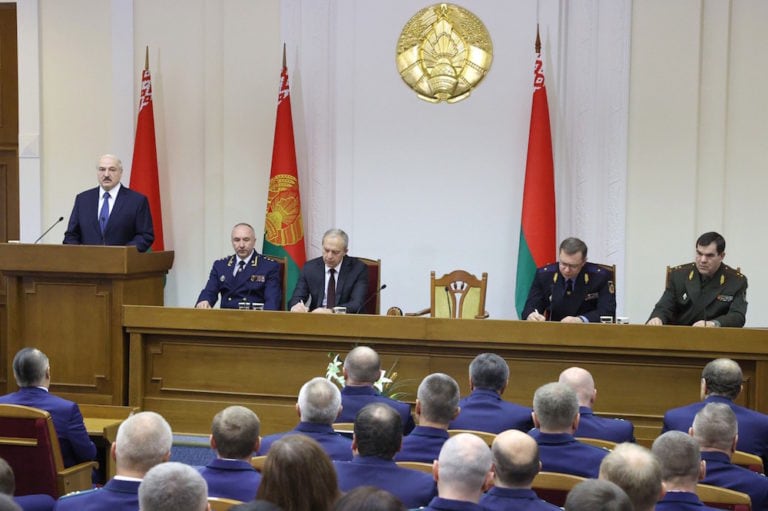(IFJ/IFEX) – The following is an IFJ media release: “Never Again”, Vows IFJ, As Court Battle Begins Over Belgian Action Against Investigative Reporter The International Federation of Journalists today accused senior officials of the European Union and Belgian justice authorities of a “cowardly, spiteful and unjust” campaign against a news reporter after police ended an […]
(IFJ/IFEX) – The following is an IFJ media release:
“Never Again”, Vows IFJ, As Court Battle Begins Over Belgian Action Against Investigative Reporter
The International Federation of Journalists today accused senior officials of the European Union and Belgian justice authorities of a “cowardly, spiteful and unjust” campaign against a news reporter after police ended an extensive examination of his files and material.
Today, the IFJ announced it was joining Hans Martin Tillack in a submission to the Court of First Instance of the European Court of Justice against the European Commission to have action taken against him annulled. Tillack is an investigative reporter for the German news magazine Stern who is accused by the European anti-corruption unit OLAF of bribing an official for information in 2002. This led to a raid on his offices and his detention in March this year.
“We have witnessed a gigantic fishing expedition in which Belgian police have been used by the European anti-corruption authority OLAF to try to intimidate a reporter,” said Aidan White, IFJ General Secretary. “The campaign against him has been unjust, the way it was carried out was cowardly and spiteful, and the threat it poses to every journalist is self-evident.”
In today’s edition of the German daily Süddeutsche Zeitung, a new story on the case suggests that the man who made the original allegation – former Commission spokesman Joachim Gross – was not pressing an earlier claim that the information about the so-called bribe came from Stern sources.
“This news brings a new dimension to this case,” said White. “There are now serious questions over the evidence against Tillack.”
White and Tillack visited Brussels Federal Police headquarters yesterday for the final act in the examination of the files of Tillack.
Some 17 boxes of papers, filing cabinets, note books and mobile telephones have been examined – a “journalist’s entire career of contacts, research and stored material, all passing before the eyes of the police in a case where the details of the allegation against him still remain secret,” said White. “It has been the most appalling violation of a journalist’s right to maintain professional confidentiality.”
The IFJ says that Tillack has not been officially charged, no details of the allegations against him have been made available, and OLAF have denied being directly involved in action against Tillack, claiming only to have “passed on” information to the Belgian authorities.
Tillack was informed in 2002 by an OLAF senior official that the suspicion he had paid for information had been raised by an official of DG Press at the European Commission, thought to be Joachim Gross. The IFJ and Tillack’s own lawyers say this raises a serious question about the independence of OLAF.
“The fact is senior people in OLAF and the Commission were irritated because Tillack was writing highly embarrassing stories about internal wrong-doing,” said White. “This whole affair smacks of a spiteful, ill-advised and thoroughly unjustified campaign to silence him. Those responsible must be called to account.”
The Stern correspondent was responsible for originally exposing the scandal at the EU’s statistical agency, Eurostat, which saw millions of euros siphoned off into secret bank accounts.
The IFJ and Tillack are going to court to see interim measures put in place to prevent OLAF from obtaining information from the material that the Belgian police took during their raid.
The IFJ says OLAF violated several of its own procedural rules as well as the European Convention on Human Rights. It should have heard his case before handing over the file to the Belgian authorities and the OLAF Supervisory Committee should have been informed before the file was handed over.
The IFJ sees the Tillack case as crucial to the progress within Belgium of current steps within the parliament to put in place new rules to protect journalists.
“This is a landmark case for protection of journalistic sources and stands as a vital forerunner to the current legal changes within the Belgian Parliament itself,” said White. “A deadline of July 12 has been set for the Senate to return any amendments of the draft law on protection of journalists sources to the Chamber, and by September this key legislation should be in full swing.”
The IFJ represents over 500,000 journalists in more than 100 countries.


